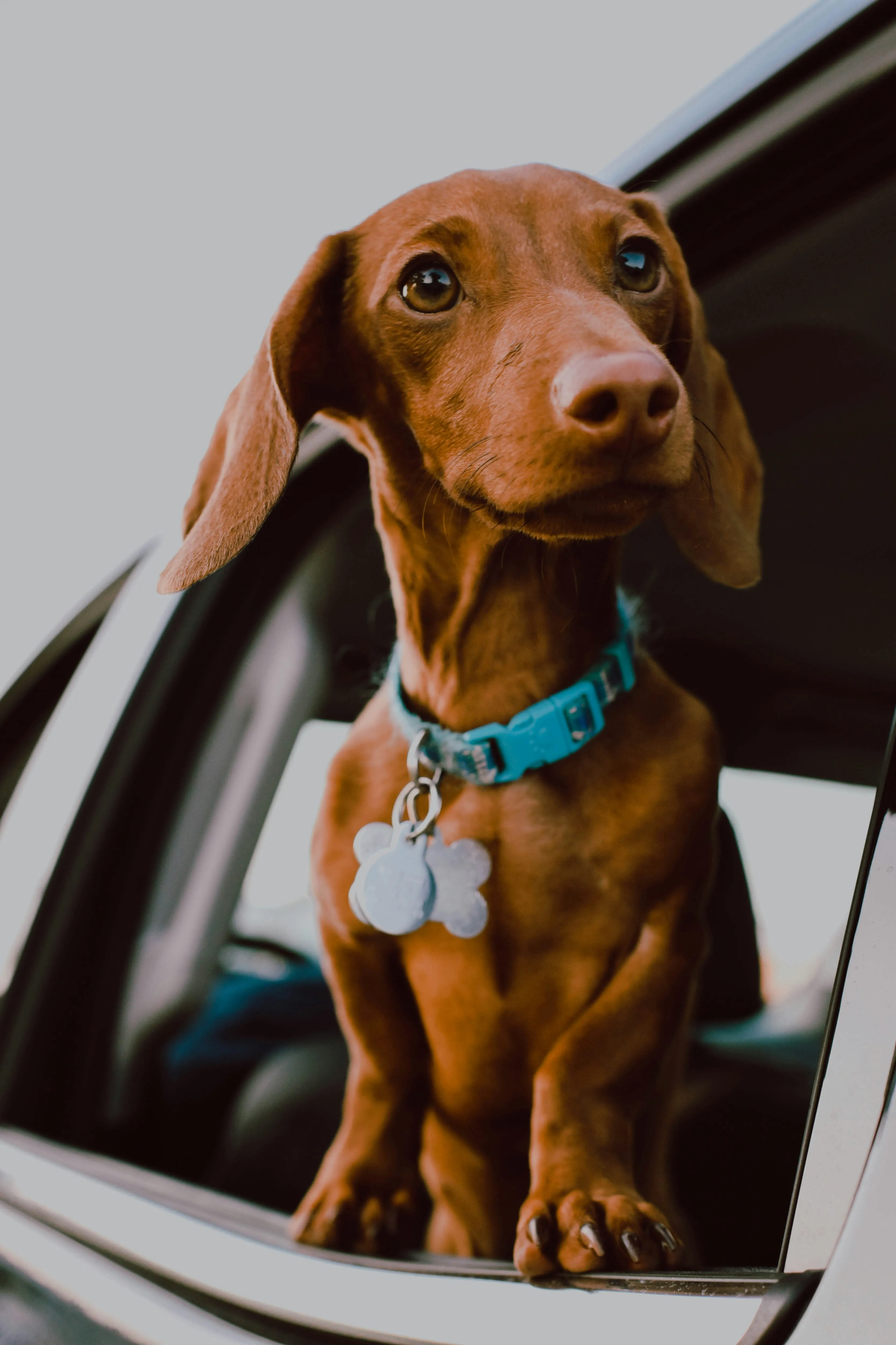Dachshund
Once you look into the faithful, sparkling eyes of a Dachshund, you will immediately fall for its charm. The lively little hunting dog delights animal-loving people with his courageous and headstrong nature. Adventurous, affectionate and clever, he loves to go on adventures with his family.
Hunting dog
12 - 16 years
20 - 27 cm
7 - 9kg

Personality
Trainability
Need for exercise
Suitable for families
Suitable as a beginner dog
Average health
Affection for people
Character and behavior of a dachshund
Dachshunds are known for their courageous, independent and affectionate character. Despite their small size, they have great self-confidence and a strong hunting instinct. They are intelligent, attentive and very affectionate towards their humans. Their lively personality makes them fascinating companions who are always good for a surprise.
Training and raising a dachshund
Dachshunds are smart and eager to learn, but have a strong will of their own. Without consistent training, they tend to make up their own rules. Positive reinforcement and lots of patience are key when training a Dachshund. Due to their hunting instinct, it is important to set them clear boundaries. Walks where they are allowed to use their nose and brain games are particularly enjoyable for them and promote their mental exercise.

Is the Dachshund a family dog?
Yes, absolutely! Dachshunds are great family dogs if they are well socialized and trained. They build a close bond with their family and love doing activities together. It is important that children learn to treat the small but robust dog with respect, as Dachshunds can sometimes react sensitively if they are treated roughly.
Do Dachshunds get along with other dogs?
Dachshunds are generally well socialized and often get along well with other dogs. However, their self-confident nature can sometimes lead to dominant behavior, especially towards larger dogs. Early and good socialization helps to promote harmonious coexistence.
How big and heavy does a dachshund get?
Dachshunds belong to the small dog breeds with a long build and short legs. There are three varieties:
Dachshund:
- Shoulder height: 20-27 cm
- Weight: 7-9 kg
Miniature dachshund:
- Shoulder height: 17-20 cm
- Weight: 4-6 kg
Rabbit dachshund:
- Shoulder height: 14-17 cm
- Weight: 3-4 kg
Affection for people
Dachshunds are extremely affectionate and enjoy being close to their caregivers. They love to be the center of attention and to accompany their family, whether on walks or relaxing hours at home.
Dachshund coat care and hygiene
The grooming of a Dachshund depends on the type of coat. Short-haired dachshunds require little grooming, while rough-haired and long-haired dachshunds need regular brushing. Rough-haired dachshunds also need to be trimmed once or twice a year. Eyes, ears and teeth should be groomed regularly to prevent infections and dental problems.

What is the life expectancy of a Dachshund?
With good care and a healthy lifestyle, Dachshunds reach an age of around 12 to 16 years. Their robust constitution and cheerful nature contribute to their long life expectancy.
What are common health problems of a Dachshund?
Dachshunds are genetically prone to back problems, especially herniated discs (dachshund paralysis). Their long spine requires special care - jumping from high furniture should be avoided. Heart disease and dental problems can also occur. A healthy weight and regular exercise are essential to prevent health problems.
Dachshunds have a higher risk of back problems than many other dog breeds due to their special body shape - a long back and short legs. Originally, this physique was specifically bred to make it easier for them to hunt badgers in narrow tunnels in the ground. Today, this anatomy means that Dachshunds are particularly susceptible to intervertebral disc disease, especially intervertebral disc degeneration (IVDD).
IVDD is an age-related, degenerative disease of the intervertebral discs that can worsen over time. It is estimated that around one in four Dachshunds will be affected by IVDD in the course of their lives. In severe cases, this disease can require surgery, which can be very costly.
Signs of IVDD can be
- Whining or howling, especially when lifted or for no apparent reason
- Pain in the neck or back
- Holding the neck in an unusually low position
- Abnormal gait or limping
- Unwillingness to jump or climb stairs
- Lameness in one or more limbs
- Curvature of the back
To prevent back problems, care should be taken to ensure that Dachshunds do not frequently jump off furniture or climb many stairs. When carrying the dachshund, it should always be held in such a way that the spine remains horizontal and is well supported.
How expensive is a dachshund?
The cost of a dachshund in Switzerland varies depending on the breeder and pedigree. A dachshund from a reputable breeder costs between CHF 2,000 and CHF 3,500, plus regular expenses for food, care, insurance and visits to the vet.
Dachshund dog insurance
Protect your dachshund from unexpected veterinary costs with dog insurance. Insurance for dachshunds makes sense, especially due to the back problems typical of the breed.
Find out more about Dachshund dog insurance here.




